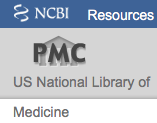Selective Cytotoxicity of Portuguese Propolis Ethyl Acetate Fraction towards Renal Cancer Cells
Ana Sofia Freitas, Marta Costa, Olívia Pontes, Veronique Seidel, Fernanda Proença, Susana M Cardoso, Rui Oliveira, Fátima Baltazar, Cristina Almeida-Aguiar
Abstract
Renal cell carcinoma is the most lethal cancer of the urological system due to late diagnosis and treatment resistance. Propolis, a beehive product, is a valuable natural source of compounds with bioactivities and may be a beneficial addition to current anticancer treatments. A Portuguese propolis sample, its fractions (n-hexane, ethyl acetate, n-butanol and water) and three subfractions (P1-P3), were tested for their toxicity on A498, 786-O and Caki-2 renal cell carcinoma cell lines and the non-neoplastic HK2 kidney cells. The ethyl acetate fraction showed the strongest toxicity against A498 (IC50 = 0.162 µg mL-1) and 786-O (IC50 = 0.271 µg mL-1) cells. With similar toxicity against 786-O, P1 (IC50 = 3.8 µg mL-1) and P3 (IC50 = 3.1 µg mL-1) exhibited greater effect when combined (IC50 = 2.5 µg mL-1). Results support the potential of propolis and its constituents as promising coadjuvants in renal cell carcinoma treatment.
* THESE STATEMENTS HAVE NOT BEEN EVALUATED BY THE FOOD AND DRUG ADMINISTRATION. THIS IS NOT INTENDED TO DIAGNOSE, TREAT CURE OR PREVENT ANY DISEASE.
